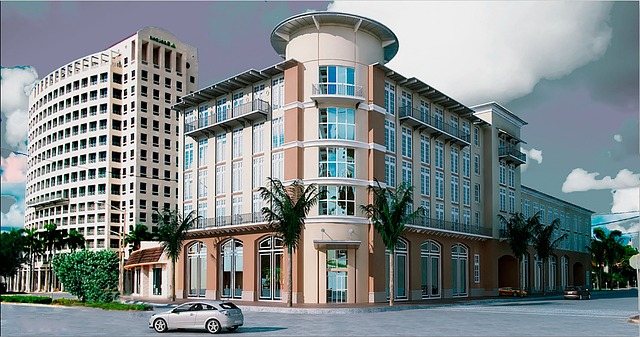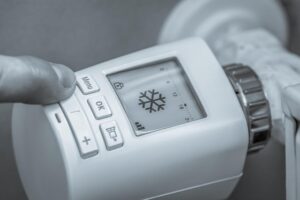Gas-fired water heaters for commercial settings require careful selection due to safety standards, energy efficiency, and specific application needs. Understanding AFUE ratings, BGA compliance, tankless vs. storage models, fuel types, and ASME regulations is crucial. Proper installation, regular maintenance by professionals, and insulating pipes enhance performance and lifespan.
Commercial gas-fired water heaters are a reliable solution for businesses seeking efficient hot water supply. To ensure safety and optimal performance, it’s crucial to understand and comply with relevant codes and standards. This article guides you through the process, from comprehending these heaters’ fundamentals to selecting the ideal model, installation best practices, and maintenance tips. Discover key efficiency metrics and essential safety considerations for a well-informed decision when choosing commercial gas fired water heaters.
- Understanding Commercial Gas-Fired Water Heaters
- Safety Standards and Regulations for Compliance
- Efficiency Metrics: What to Look For
- Selecting the Right Model for Your Business
- Installation, Maintenance, and Longevity Tips
Understanding Commercial Gas-Fired Water Heaters

Gas-fired water heaters are a popular choice for commercial applications due to their reliability and efficiency in providing hot water for various industries. These heaters are designed to meet specific demands, from high-capacity applications in hotels and restaurants to institutional settings requiring ample hot water supplies. Understanding the intricacies of commercial gas-fired water heaters is crucial when selecting the right system for any establishment.
Commercial water heating involves specialized equipment tailored to accommodate larger volumes and consistent demand. Gas fired systems offer numerous benefits, including faster heating times and precise temperature control, making them ideal for applications where energy efficiency and cost savings are paramount. Whether it’s a tankless water heater design, which eliminates the need for storage tanks, or traditional storage water heaters, each has its advantages in terms of capacity, space requirements, and operational costs.
Safety Standards and Regulations for Compliance

Commercial gas-fired water heaters must adhere to stringent safety standards and regulations to ensure their reliability and prevent accidents. These norms are in place to protect users, building occupants, and maintenance personnel from potential hazards associated with gas appliances, including leaks, explosions, and carbon monoxide poisoning. Compliance is crucial for obtaining certifications, such as those from Underwriters Laboratories (UL) or Intertek, which validate the safety and quality of these devices.
For commercial water heating applications, such as those found in restaurants, hotels, and institutional settings, gas fired systems are often preferred for their high capacity and efficiency. Regulations, therefore, specifically address the unique challenges posed by these larger-scale heaters, including proper ventilation, gas supply lines, and safety features like pressure relief valves and automatic shutoff devices. Ensuring compliance with these standards not only guarantees a safe operating environment but also optimizes energy performance, as modern commercial gas heaters are designed to meet or exceed efficiency codes.
Efficiency Metrics: What to Look For

When evaluating commercial gas-fired water heaters, understanding efficiency metrics is crucial for making an informed decision that aligns with both safety and cost-effectiveness. Key performance indicators include Annual Fuel Utilization Efficiency (AFUE), which measures how efficiently a heater converts fuel into usable heat. Higher AFUE ratings signify better performance and reduced energy wastage. Look for models boasting AFUE scores of 95% or higher, indicating superior efficiency in commercial water heating applications.
Additionally, consider the British Gas Association (BGA) standards and certifications to ensure safety and quality. Features such as atmospheric combustion, electronic ignition systems, and advanced heat exchangers contribute to safer gas fired systems. For high-capacity heaters catering to demanding industrial hot water needs, including restaurant water heating or hotel hot water systems, tankless water heaters offer significant advantages in terms of space savings and energy efficiency compared to traditional storage water heaters.
Selecting the Right Model for Your Business

Selecting the right commercial gas-fired water heater model for your business is a crucial step in ensuring efficient and safe hot water supply. It involves understanding your specific needs, such as the required flow rate, temperature, and space constraints. Different types of commercial water heating systems include tankless water heaters, known for their energy efficiency and compact size, ideal for spaces with limited room. On the other hand, storage water heaters offer a cost-effective solution for high-capacity applications, like restaurants and hotels, where consistent hot water demand is essential.
When choosing a model, consider factors such as fuel type (natural gas or propane), energy ratings (AFUE or efficiency percentage), and safety features. Compliance with modern safety codes and standards, like the ASME (American Society of Mechanical Engineers) regulations, guarantees that the heaters are designed to prevent leaks and ensure proper ventilation. This is especially critical in institutional settings where large volumes of hot water are used daily, necessitating robust and reliable gas fired systems.
Installation, Maintenance, and Longevity Tips

Proper installation is key for commercial gas-fired water heaters to function efficiently and safely. Professional installers should adhere to local codes and regulations, ensuring proper venting, gas line connections, and electrical wiring. Regular maintenance is equally vital; annual inspections by certified technicians can prevent potential issues and extend the lifespan of these systems. This includes checking for leaks, inspecting the burner, and cleaning the heat exchanger.
When it comes to longevity, high-quality commercial water heating solutions, whether tankless or storage heaters, offer better durability with regular care. Preventative measures like insulating pipes to reduce temperature loss, scheduling routine maintenance, and using appropriate flame adjusters can contribute to a longer lifespan. Additionally, choosing the right capacity for your specific institutional, hotel, or restaurant needs ensures optimal performance, minimizing energy waste and maximizing return on investment in commercial gas fired water heaters.
When selecting a commercial gas-fired water heater, prioritizing safety, efficiency, and quality is paramount. By understanding industry standards, evaluating efficiency metrics, and choosing the right model tailored to your business needs, you can ensure a reliable and cost-effective hot water solution. Proper installation, regular maintenance, and adherence to longevity tips will further contribute to the success of your investment in commercial gas fired water heaters.
